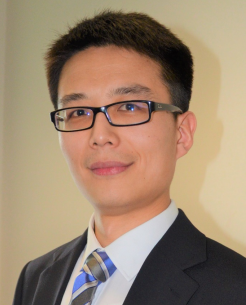
主讲人:赵辰洋 副研究员
邀请人:宫全美 教授
时间:2018年10月17日(周三)下午13:30
地点:交通运输工程学院103会议室
主讲人简介
Dr. Zhao is now a Research Associate at the Department of Civil and Environmental Engineering, Ruhr University Bochum, Germany. He received his Ph.D. at Ruhr University Bochum in March, 2018. He also received his M.Sc. in Geotechnical Engineering and B.Sc. in Civil Engineering from Hohai University (Nanjing, China) in 2013 and 2010, respectively. In February 2018, he was a visiting scholar at Department of Civil and Environmental Engineering at Massachusetts Institute of Technology (MIT).
Dr. Zhao’s research interests include numerical modeling of mechanized tunneling, constitutive modeling of soil behavior, soil-structure interaction, sensitivity, inverse and uncertainty analyses of the engineering problems.
Dr. Zhao’s awards include the Scholarship of Wilhelm und Günter Esser Stiftung (granted by Ruhr University Bochum) and Outstanding contribution in reviewing by Tunnelling and Underground Space Technology. He also acts as the reviewer for the following journals: International Journal for Numerical and Analytical Methods in Geomechanics, Computers and Geotechnics.
主讲内容简介
The goal of this research is to conduct adequate numerical simulation of tail void grouting during mechanized tunnel excavation and to develop advanced process simulation techniques for the purpose of optimization of computational costs during numerical simulation.
By taking into account the tunnel advance speed and soil's permeability, different hydro-mechanical coupling (consolidation) analysis schemes are introduced for numerical simulation of tunnel excavation in saturated soil. Furthermore, the effects of grout features in the near field around the tunnel, namely grout hardening induced stiffness evolution and grout infiltration induced permeability evolution, are investigated.
In the second part of this presentation, three advanced process simulation techniques are introduced for saving computational costs of numerical simulation of tunneling process. Adaptive constitutive modeling aims to adequately describe the soil behavior in different sub-domains of the model by assigning appropriate constitutive models. The objective of submodeling is to cut a region of interest from the initial global model and to continue the following simulation in this small scale model only. Hybrid modeling is proposed to combine the capacity of the process-oriented submodeling to accurately describe the complex tunneling induced system behavior with the computational efficiency of metamodel.
Finally two tunnel case studies are conducted to validate the aforementioned methodologies, it is shown that the validated numerical model is very well capable to predict the tunneling induced system behavior, and the sensitivity field is a powerful tool for design of optimal sensor locations.
欢迎各位老师、同学参加同路人学术论坛!
交通运输工程学院研究生会
交通运输工程学院青年教师沙龙